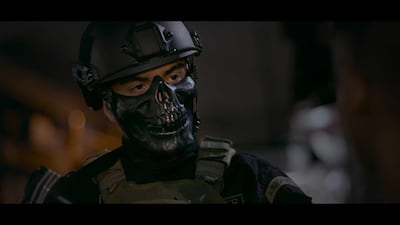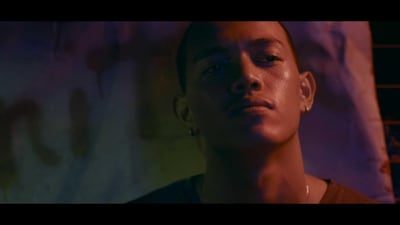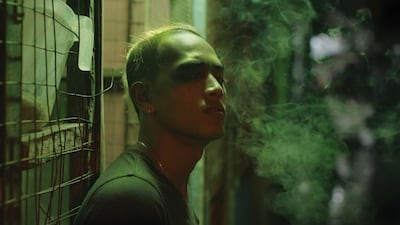On the President's Orders is a documentary set in the Philippines that investigates President Duterte's bloody campaign against drug dealers and addicts. The film reveals that his brutal war on drugs led to police officers taking the rule of law into their own hands and murdering suspects. The situation is so bad that President Duterte publicly ordered the police to stop extrajudicial killings. The filmmakers reveal how the order is being circumnavigated as the police start carrying out murders dressed in civilian clothing and blaming others.
'Amazing photojournalism'
Directed by Emmy-winning documentary filmmakers Olivier Sarbil and his regular collaborator James Jones, the story is told through accounts of the Manila police and testimonies of an ordinary family from the slums affected by the murders. The documentary starts with CCTV footage of the brutal shooting of the father of the family on the street in broad daylight.
Jones says that the filmmakers' interest in the Philippines began in early 2017: "We just finished a film called Mosul, which we shot in Iraq. There was a lot of amazing photojournalism coming out of the Philippines, mainly by local journalists who would see bodies in the street, night after night, men killed by the police, or so-called vigilantes."

When the deaths in the Philippines started getting some attention in the media, it stoked the interest of the filmmakers. "It was a bit superficial, you would see the bodies and the crying families, but you wouldn't understand who was doing the killings and why?" says Jones. "It felt like Olivier and I could take the model of our working method on Mosul, where we got access to a group who kind of saw themselves as tough, and get into their heads a little bit to understand their rationale for killing."
Winning trust
Frenchman Sarbil is the cinematographer on the documentary as well as the co-director. He says of the working methods of the pair: "One of the things we like to do is to win the trust of the people. It was different to Mosul because that was a war zone. The challenge is to make people forget about us when we film."
When the filmmakers first went to the Philippines in October 2017 to discover the lay of the land for themselves, they were worried they had missed their window of opportunity to make a film on the Filipino war on drugs. “Duterte had been blood-curdling during the election saying things like Germany had Hitler, the Philippines can have me. Yet, when we got there, he had to sort of pause the war on drugs because there had been some high-profile cases where teenagers had been killed, with the police being caught red-handed.”
They thought that they would have trouble getting access. “But as it happened, we met this police chief that kind of loved the idea of letting people make a film about him,” says Jones at the CPH Dox film festival in Copenhagen, where I met with the filmmakers after the film’s world premiere. “He had the right amount of ego and vanity and also there was a push from above to show the cops had changed, whether they had or not, so it turned out the timing was good. We started in January 2018 and over the course of six months we made three or four trips, spending 12 weeks on the ground.”

They spent time with the family of a man accused of drug dealing, who the filmmakers suspect was shot by police in plain clothes. They also got friendly with many police officers in addition to the new police chief, Jemar Modequillo, brought in to clean up the notorious Caloocan district of Manila. "How we got to understand the story is by spending time with the police when we were filming and not filming, going away for days with them," adds Jones. "After spending so much time with them, they started to relax and joke with us about the killings. We were also careful not to say anything that could be construed as endorsing what they were saying."
'On the record'
There is a moment in the film, when the filmmakers turn off the camera, but with the microphone still running, a police officer changes the testimony he has just made on camera to reveal that he has heard from colleagues that police officers had been involved in some of the murders. The filmmakers admit that this revelation is not a slam-dunk moment by any means, as it’s hearsay commentary. So it begs the question as to why the filmmakers use it, given that it seems to blur journalistic etiquette of only using “on the record” quotes.
"We certainly didn't want to present it as a big gotcha moment," says Jones. "But on the balance, we thought he was lying at the beginning of the interview and he kind of confirmed it in the end. Also he knew that he was wearing a microphone and he knew it was on. It was something we discussed with our executive producers and it felt important to show that privately, the police were taking seriously the idea that other colleagues could be carrying out these murders in broad daylight."
The other question that some may reasonably have is what is the problem with a president being hard on drugs? “I think the first thing to say is that the Filipino drug problem is just as bad as any other country,” explains Jones.
“Duterte uses drugs as his bogeyman and argues that it is the root of all evil, behind all rapes, robberies and murders. In different parts of the world, it might be terrorists, or Muslims, Mexicans or poor immigrants being used in this way.”
The filmmakers add that Duterte used the war on drugs as a popular policy during the May 2016 election when he came to power and then to exert control. “He uses drugs to show that he is different, that he can control corruption,” adds Jones. “But he is using it as a political tool, he is not really interested in wiping out drugs. He can present it as a moral crusade, but that is not what it is. If I thought his methods were backed up by people who know how to deal with drugs, then potentially there would be an argument, but given that thousands of people are being killed, most of whom are very, very low level drug runners, I think history will judge him harshly.”
On the President’s Orders will be screened at the Hot Docs Film Festival in Toronto on Saturday


